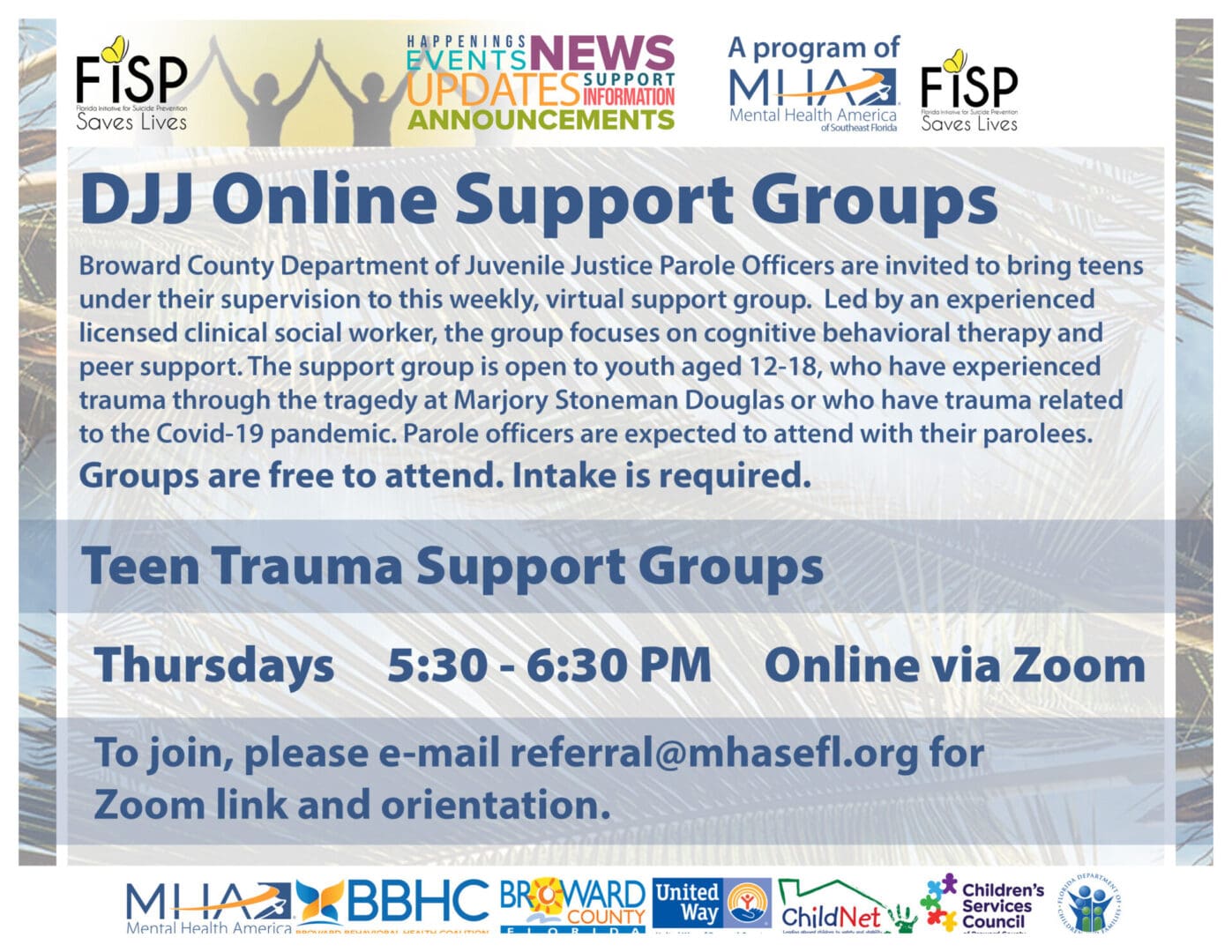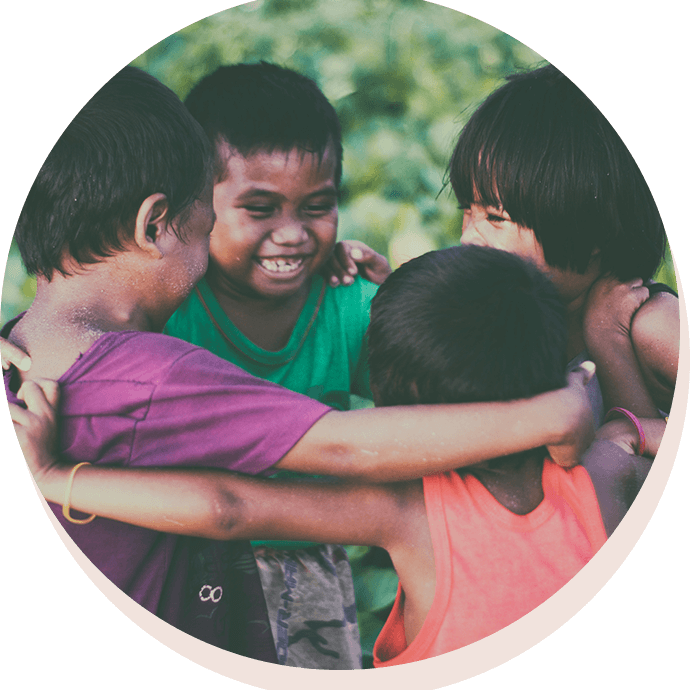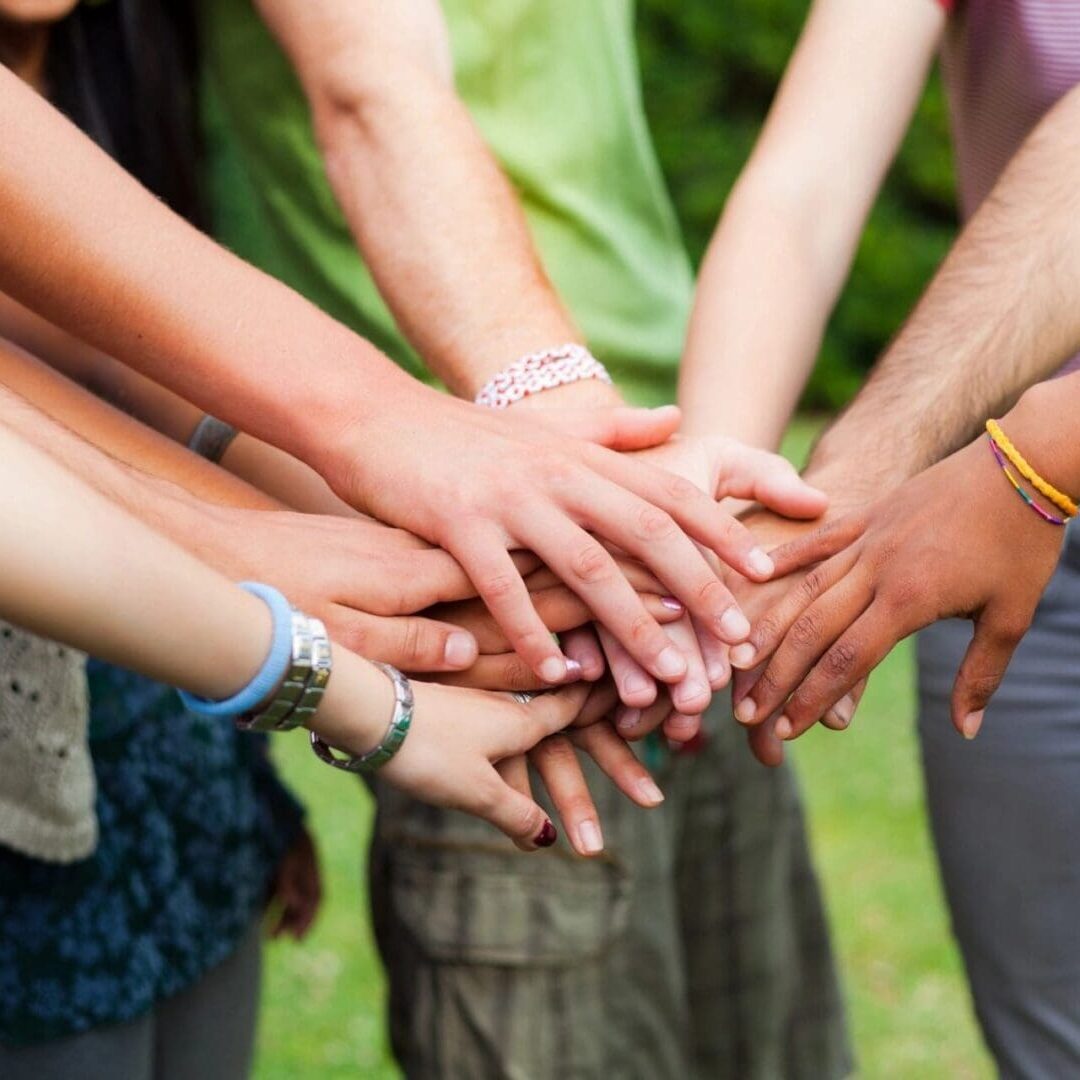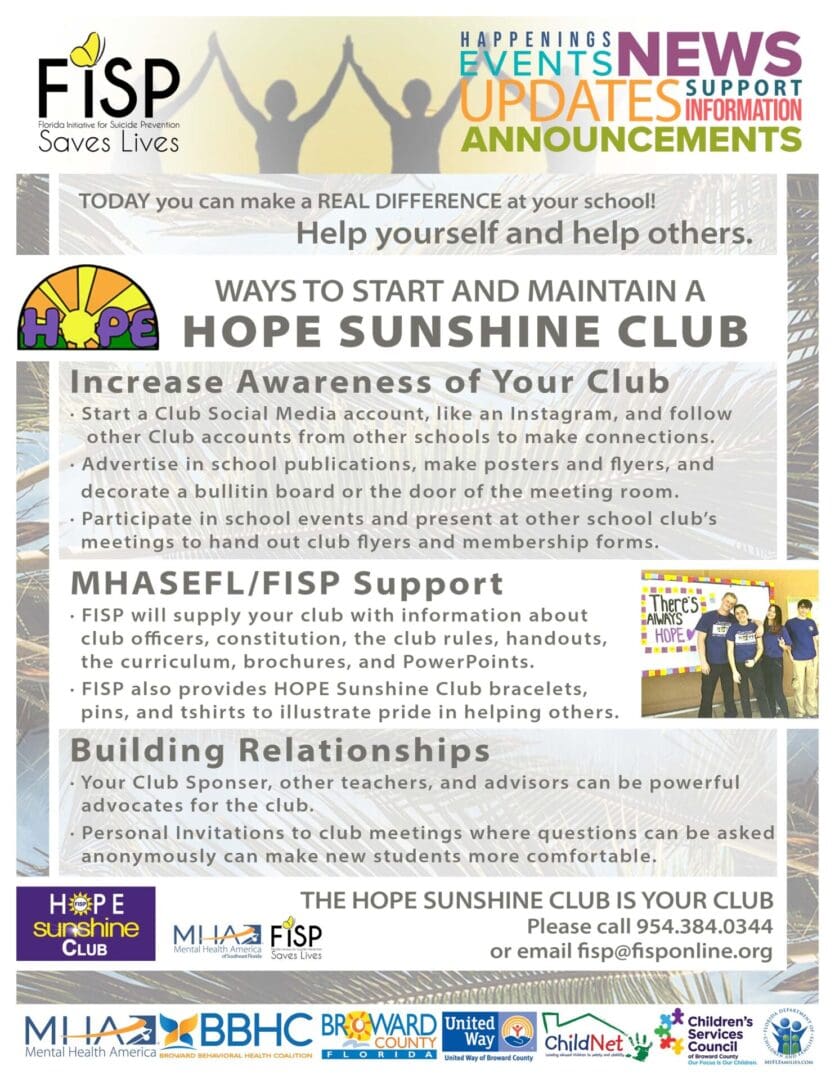
Children’s Prevention Initiatives

Listen to Children
In 1979, MHA partnered with Broward Schools to pilot Listen to Children (LTC), a mentoring program for elementary students, and the program has run continuously since. The premise is that children benefit from a supportive ongoing relationship with a caring, non-judgmental friend who is not an ‘authority figure.’ The Listener is someone who listens with the heart and tries to understand. In today’s busy and stressful home and school environments, one-on-one time is sometimes hard to come by. The Listener can help children relax and receive extra positive attention in their busy lives.
Get Ready For Back To School 2024 With MHA
Adolescence is already a confusing time without added concerns about social media, safety in schools, staying healthy, family financial security, and loss of loved ones—so we shouldn't be surprised that the rates of anxiety, depression, suicide, and other mental health conditions are on the rise. This year, Mental Health America Recognizes with our 2024 Back to School Toolkit that our youth are having "All the Feels" as they enter the new school year. These resources look at the issues young people face that are having an impact on their mental health and offer tips on how to deal with these issues and the resulting emotions. The MHA toolkit can also help parents and school personnel better understand the issues, such as the effects of social media on youth mental health and how to be supportive. The 2024 Back to School Toolkit will be available the week of August 22nd. | ||
|
| ||
H.O.P.E Helping Overcome Problems Effectively

HOPE Sunshine Club
The HOPE Sunshine after school club is approved by the Broward County School Board for an entire school year curriculum engaging middle, high school and college students.
HOPE Sunshine Club members host weekly meetings at each school that has a HOPE Sunshine Club.
The HOPE Sunshine Club Teen Board where each club sends members to meet with other clubs officers to share information and help each other make their clubs better.
WHY STUDENTS SHOULD JOIN A HOPE SUNSHINE CLUB AS EXPLAINED BY CLUB MEMBERS
“What HOPE does is create a community where people can confide in each other and learn from each other as well. It’s a welcoming environment when the pressures of grades, family, or others can often become overwhelming. It’s also a club that gives opportunities for students to learn and grow by participating in events that expand their knowledge and empathy whilst creating a more understanding community as a whole.” [I.]
The importance of HOPE is to provide students with an open and welcoming environment to allow them to express themselves freely. This safe space is where relationships are built among students, and they can speak openly about anything on their mind or any struggles that they are facing. HOPE educates students about problem solving and how to healthily overcome issues while removing the stigma surrounding mental health. They’re also given the opportunity to help others and the community. HOPE actively spreads positivity.” [C.]
“HOPE gives everyone who feels helpless and alone a sense of family and love. We forget our differences and come together to help each other get through our problems and learn how to solve problems. Hope creates leaders and allows teenagers, and their parents, an opportunity to understand each other and build empathy. Hope gives you a chance to become a better version of yourself and be the change you want to see in the world. HOPE gives hope.” [O.]



I’m Thumbody
I’m Thumbody, a one-hour self-esteem program for Grade 2 students, has been presented in Broward Schools since 1983; over 372,550 children have participated to date. Originally offered as a volunteer project, the program was expanded in 1997 through a funding grant from DCF/SAMH. That funding ended a few years back, but I’m Thumbody continues to be offered to Broward schools. We are seeking additional funding at this time.
The idea behind the program is that children are so special they have their own unique thumbprints. Children learn to respect themselves, respect others, be responsible for their attitudes/actions, and where to go for safe help. These concepts are helpful for bully prevention as well. The classroom presentation introduces the concept of good mental health and discusses the positive value of differences. The presenter teaches the second graders to change negative thoughts to positive ones so they can feel good about themselves. In addition, children learn that it’s good to talk about their feelings and ways to manage their anger.
